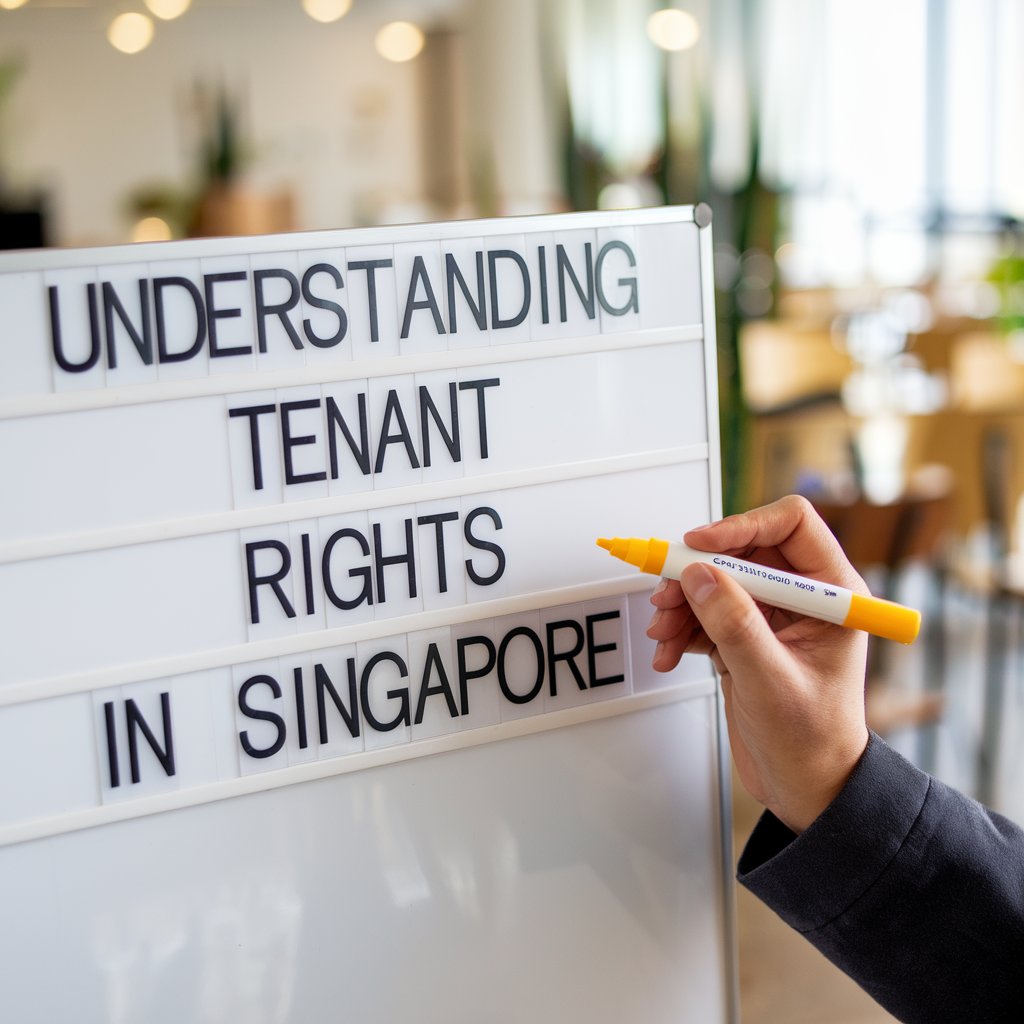Renting a property in Singapore can be a complex and daunting process, especially for those who are unfamiliar with the legal rights and obligations of tenants. Whether you’re a first-time renter or a seasoned tenant, it’s important to understand your rights and protections under Singapore law. In this comprehensive guide, we’ll explore the key aspects of tenant rights in Singapore and provide practical tips for navigating the rental market.
The Importance of Tenancy Agreements
The foundation of any rental arrangement in Singapore is the tenancy agreement, which outlines the terms and conditions of the rental relationship between the landlord and the tenant. A well-drafted tenancy agreement is essential for protecting the rights and interests of both parties and minimizing the risk of disputes or misunderstandings.
When reviewing a tenancy agreement, it’s important to pay close attention to key clauses such as:
- Rental amount and payment schedule
- Security deposit and other fees
- Duration of the tenancy and renewal options
- Maintenance and repair responsibilities
- Restrictions on the use of the property
- Termination and eviction procedures
If you have any questions or concerns about the terms of the tenancy agreement, it’s advisable to seek legal advice before signing the contract.
Security Deposits and Other Fees
One of the most important aspects of tenant rights in Singapore is the protection of security deposits. Under the law, landlords are required to return the security deposit to the tenant within 7 days of the expiry or termination of the tenancy agreement, provided that the tenant has not breached any of the terms of the agreement.
If the landlord wishes to make deductions from the security deposit for damages or other expenses, they must provide the tenant with a written itemized list of the deductions and the reasons for each deduction. The tenant has the right to dispute any deductions that they believe are unreasonable or unjustified.
In addition to the security deposit, tenants may also be required to pay other fees such as stamp duty, agent fees, or utility charges. It’s important to clarify these fees upfront and ensure that they are clearly outlined in the tenancy agreement.
Maintenance and Repairs
Another key aspect of tenant rights in Singapore is the right to a safe and habitable living environment. Landlords are responsible for ensuring that the rental property is in a good state of repair and fit for human habitation at the start of the tenancy and throughout the rental period.
If there are any defects or issues with the property that pose a risk to the health or safety of the tenant, the landlord is obligated to rectify the issues within a reasonable timeframe. Tenants have the right to request repairs or maintenance work to be carried out, and landlords must respond to these requests promptly.
In some cases, tenants may be able to arrange for repairs or maintenance work to be carried out themselves and deduct the cost from the rental amount, provided that they have given the landlord reasonable notice and opportunity to carry out the work.
Privacy and Quiet Enjoyment
Tenants in Singapore have the right to privacy and quiet enjoyment of the rental property, free from unreasonable interference or disturbance by the landlord or other tenants. This means that landlords cannot enter the property without the tenant’s consent, except in emergency situations or for necessary repairs or inspections.
Landlords must also ensure that the property is reasonably soundproof and free from excessive noise or other nuisances that may disrupt the tenant’s peaceful enjoyment of the property. If there are persistent issues with noise or other disturbances, tenants may have grounds to terminate the tenancy agreement early or seek compensation from the landlord.
Rental Increases and Renewals
Rental tenants’ rights in Singapore also extend to the issue of rental increases and tenancy renewals. Landlords cannot increase the rental amount during the fixed term of the tenancy agreement, unless there is a specific clause in the agreement allowing for rental increases based on certain conditions, such as changes in the market rental rate or the cost of living index.
At the end of the fixed term, the landlord may propose a rental increase for the renewal period, but the tenant has the right to negotiate the amount or decline the renewal offer. If the tenant wishes to renew the tenancy but cannot agree on the rental amount with the landlord, they may choose to file a case with the Small Claims Tribunal to seek a determination on the fair market rental value of the property.
Termination and Eviction
Perhaps the most important aspect of tenant rights in Singapore is the protection against unlawful eviction or termination of the tenancy agreement. Landlords cannot evict tenants or terminate the tenancy agreement without valid grounds and proper notice, as specified in the tenancy agreement or the law.
Valid grounds for eviction or termination may include:
- Non-payment of rent or other fees
- Breach of the tenancy agreement or house rules
- Damage to the property or fixtures
- Illegal or immoral use of the property
- Expiry of the tenancy agreement
If the landlord wishes to terminate the tenancy agreement before the expiry date, they must provide the tenant with written notice as per the terms of the agreement, which is typically 30 to 60 days. The tenant has the right to challenge the termination notice if they believe it is unfair or unjustified.
In the event of a dispute between the landlord and the tenant, either party may file a claim with the Small Claims Tribunal for a resolution. The tribunal has the power to make orders on issues such as the return of the security deposit, compensation for damages or losses, and the termination of the tenancy agreement.
Resources and Support for Tenants
If you’re a tenant in Singapore and you’re facing issues with your landlord or rental property, there are several resources and support services available to help you understand and protect your legal rights.
Some of the key organizations and resources for tenants in Singapore include:
- The Small Claims Tribunal: A specialized court that handles disputes between landlords and tenants, with a focus on resolving cases quickly and efficiently.
- The Consumer Association of Singapore (CASE): A non-profit organization that provides advice and assistance to consumers, including tenants, on a range of issues related to fair trading and consumer protection.
- The Housing and Development Board (HDB): The government agency responsible for public housing in Singapore, which also provides information and resources for tenants in the private rental market.
- The Council for Estate Agencies (CEA): The regulatory body for the real estate industry in Singapore, which oversees the conduct of property agents and provides public education on the rights and responsibilities of landlords and tenants.
By familiarizing yourself with these resources and seeking advice and support when needed, you can ensure that your rights as a tenant in Singapore are protected and that you have a positive and successful rental experience.
Conclusion
Renting a property in Singapore can be a complex and challenging process, but understanding your rights and obligations as a tenant is essential for navigating the rental market with confidence and success. By familiarizing yourself with the key aspects of tenant rights in Singapore, such as tenancy agreements, security deposits, maintenance and repairs, privacy and quiet enjoyment, rental increases and renewals, and termination and eviction, you can ensure that your rental experience is fair, transparent, and legally sound.
Remember, if you’re ever in doubt about your rights or facing issues with your landlord or rental property, don’t hesitate to seek advice and support from the various resources and organizations available to tenants in Singapore. With the right knowledge and support, you can assert your legal rights as a tenant and enjoy a safe, comfortable, and hassle-free rental experience in Singapore.






